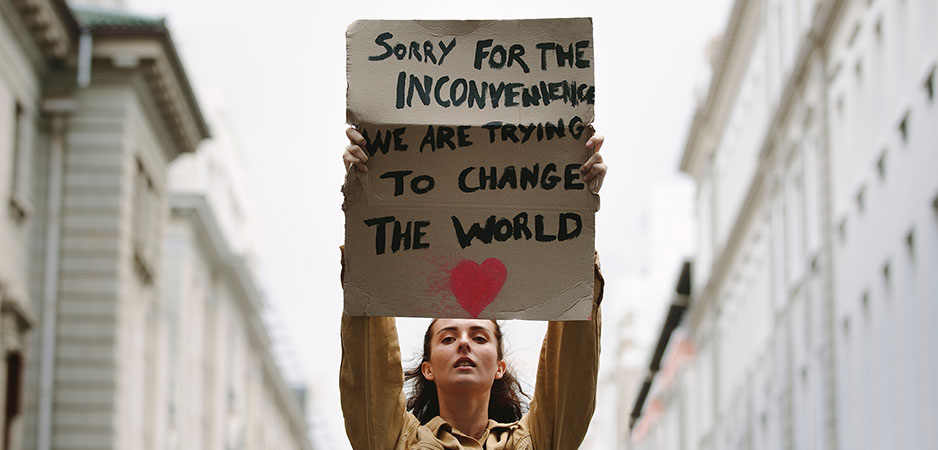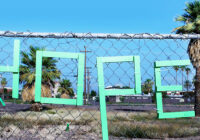“All of you young people who served in the war. You are all a lost generation.” This famous phrase is credited to Gertrude Stein by Ernest Hemingway, who popularized it in the epigraph to his 1926 novel “The Sun also Rises.” The phrase encapsulates the feelings of a generation, disillusioned by the civilizational breakdown witnessed during the Great War, the loss of faith in the ideals and values that had marked their pre-war youth, which left them empty and cynical. In Europe, many of them would ultimately find a new purpose in the ranks of Mussolini’s squadristi, Hitler’s Sturmabteilung and the various fascist movements that sprang up in their wake — with disastrous results.
It might appear preposterous to compare today’s younger generations, millennials and zoomers (aka Generation Z), to Hemingway’s cohort of young women and men on both sides of the Atlantic. And yet there are good reasons to presume that today’s younger generations are going to be as deeply, if not more, scarred — socially, economically and psychologically — by COVID-19 as the Lost Generation was by World War I.
Foretaste of Things to Come
The travails of COVID-19, as has been frequently noted, are just a foretaste of things to come. The combination of climate change and the destruction of natural habitats has made the outbreak of infectious diseases spreading from animals, such as bats and birds, to humans increasingly likely. As a landmark study published in Nature put it a decade ago, “mounting evidence indicates that biodiversity loss frequently increases disease transmission.” Or, to put it differently, “current evidence indicates that preserving intact ecosystems and their endemic biodiversity should generally reduce the prevalence of infectious diseases.”
Unfortunately, the opposite has been the case. The current rate of extinction is “tens to hundreds of times higher than the average over the past 10 million years — and it is accelerating.” By now, humanity, which accounts for not more than a small sliver of life on this planet, is responsible for the loss of more than 80% of all wild mammals and half of all plants. The consequences are potentially catastrophic.
For the moment, concerns about global warming and the rapid loss of biodiversity has been overshadowed by the all-consuming issue of COVID-19. And for good reasons. The novel coronavirus has severely disrupted life as we have come to know and expect it. And there is no end in sight. Its social, economic and psychological consequences, in addition to its impact on public health, has been profound and far reaching, particularly for the younger generations. Millennials, already pummeled by the fallout from the Great Recession of 2008, have been hit hard once again. For zoomers, the generation born between the mid-1990s and the early 2010s, COVID-19 is likely to be the formative experience shaping the rest of their lives.
For both generations, the economic impact of the pandemic has been disastrous. Already last year, months before the pandemic hit the United States full force, Annie Lowrey wrote in The Atlantic that millennials were “likely to be the first generation in modern economic history to end up worse off than their parents. The next downturn might make sure of it, stalling their careers and sucking away their wages right as the Millennials enter their prime earning years.” The pandemic confirmed her worst fears. Early this year, Lowrey characterized the pandemic as a “financial tsunami for younger workers.”
According to preliminary data, after the onset of the pandemic, “a staggering 52 percent of people under the age of 45 have lost a job, been put on leave, or had their hours reduced due to the pandemic, compared with 26 percent of people over the age of 45.” Federal aid was likely to do little to nothing to alleviate their financial woes.
The outlook is equally bleak for zoomers. According to the consulting firm Delloite, in April and May 2020, 30% of Zoomers reported having lost their job or having been put on temporary, unpaid leave. This is particularly ironic. As Mathew Goodwin has recently noted, zoomers “find themselves in a strange position — on the one hand, they are on track to be the most well-educated generation in history but, on the other, they are entering the labour market amid one of the most challenging periods in history.” Given their educational background and levels of skills, their prospects in the labor market should be bright; instead, they are nothing short of bleak.
At least for the moment, opportunities for internships have largely dried up, entry positions are rare and, for those who manage to get one, the pay is low. And things are unlikely to get better any time soon, given the depth of the coronavirus-induced recession. As an essay in The Economist recently put it, “Economic misery has a tendency to compound. Low wages now beget low wages later, and meagre pensions after that. The prospect of middle-aged drudgery beckons.”
After Us, the Deluge?
The Lost Generation’s soul-shattering experience of senseless death during the Great War turned many of them cynical while leading them into aimless and reckless pursuit of vacuous, decadent hedonism, reflected in the writings of F. Scott Fitzgerald and the paintings of George Grosz. Given the circumstances, one might expect history to repeat itself, not as a “grand tragedy” but as a “rotten farce,” as per Karl Marx’s “The Eighteenth Brumaire of Louis Napoleon,” reflected in the infamous “COVID parties” on the beaches of Florida, with their flair of Russian roulette, scripted according to the adage “after me, the deluge,” or, more prosaically, “who gives a shit about the future.”
As it turns out, zoomers do — or so a growing number of recent studies suggest, whether produced by think tanks or by business consulting firms seeking to exploit Gen Z’s consumer potential. The results are nothing short of stunning, the implications potentially revolutionary. Take global warming. In 2019, an Amnesty International-sponsored survey found more than 40% of young people considering global warming the most important global issue. At the same time, however, almost half of zoomers and more than 40% of millennials thought that it was already too late to repair the damage caused by climate change.
This, however, does not seem to have turned them cynical, self-centered, apathetic or escapist. On the contrary. An article in Forbes, written at the height of last year’s global mass demonstrations calling for action to confront climate change, put it best, claiming that Gen Z was “a force to be reckoned with. They’re not trying to change the world; they’re already doing it and, in many cases, they’re leading the way.”
A Gen Zer’s Perspective on Climate Change Reform
Recent studies support this contention. They find that the younger generation holds deeply engrained values that more often than not are in complete opposition to the values that dominated advanced capitalist societies pre-coronavirus. In the face of a resurgence of ethnocentrism and tribalism, they cherish diversity while rejecting the knee-jerk nationalism that has been the hallmark of right-wing populism currently en vogue from Britain to Denmark, from Italy to the United States.
Unlike their elders, who for decades allowed themselves to be subjected to incessant neoliberal indoctrination claiming that the state is part of the problem, that only markets get things right, that society does not exist, and that everybody fends for themselves, zoomers are pro-government and supportive of a strong state. COVID-19 has not only validated and reaffirmed their belief in government action and the extension of social welfare policies but also in the necessity of fundamental, radical change.
With Gen Z, the old slogan from the student movement of the 1960s that “the personal is political” has come back with a vengeance — and a new meaning. We have seen it with the controversies over the wearing of masks that have shown how quickly and to what degree personal choice turns into political statement these days. Today, as a number of top-notch business consulting firms have affirmed, this is particularly true with respect to consumption patterns and consumer choices. Veganism, for instance, is not only a lifestyle choice — it is also, and in some instances even predominantly, a political statement. As Deborah Kalte has recently noted, the “vast majority of vegans is politically motivated and aims to induce change in society at large.”
In the past, as Thorstein Veblen and Pierre Bourdieu have argued and shown, consumption served as a marker, a sign of distinction, and this in a very material sense. Today, or so a number of studies suggest, at least with the younger generation, consumption is tied in with ideals and values, which makes it highly political.
The Personal Is Political
Even before the onset of the pandemic, business reports noted the central importance of sustainability for the younger generation. In 2015, a Nielsen report found more than 70% of global millennials were willing to pay more for sustainable goods. Five years later, a First Insight report found that “the vast majority of Generation Z shoppers prefer to buy sustainable brands, and they are most willing to spend 10 percent or more on sustainable products.” At the same time, the report noted that Gen Zers and millennials “are the most likely to make purchase decisions based on values and principles (personal, social, and environmental).”
And the revolution does not stop here. Business consultants have already set their eyes on Generation Alpha — the offspring of the millennial generation and younger siblings of Gen Z — who populate today’s cradles and kindergartens. As an article in Wired puts it, the “latest age group to emerge are barely out of diapers, and the internet is already serving them ads.”
Raised and influenced by their millennial parents and Gen Z siblings, they are expected to be just as progressive and radical — even more so — as their immediate elders, or so a recent report from the e-commerce consulting firm Wunderman Thompson Commerce wants us to believe. Confronted with myriads of global crises — humanitarian, ecological, economic, social — they are characterized as “uniquely ethically inclined and value-led.” This is based on the finding that more than two-thirds “of 6 to 9 year olds say that saving the planet will be the central mission of their careers in the future, joining the fight that current Gen Zs are leading.” An equally large proportion indicated they would like to buy from companies that “are trying to do good in the world.”
If the findings of these studies are true, things are likely to heat up considerably in the near future, both socially and politically. What the younger generations represent is a reality that is fundamentally at odds with the one peddled by Donald Trump, Boris Johnson, Jair Bolsonaro and Scott Morrison (Australia’s champion of coal), to name but a few. There is a huge gap between the perceptions and values of the younger generations and those of the older generations, as most recently seen once again with COVID-19, whether with regard to wearing masks or accepting track-and-trace apps. Today, the fate of the planet is to a large extent in the hands of generations that are unlikely to experience the full force of the disasters their actions and inactions have caused. The reality is that governments, corporations and the older generation have largely failed the younger generations and continue to do so — with catastrophic consequences. Over the past several decades, governments have piled up huge amounts of national debt. With COVID-19, they have added further layers, bound to impose yet another enormous burden on today’s youth.
Under the circumstances, it might be tempting to dismiss them as another Lost Generation. It bears remembering, however, that it was the original Lost Generation that was instrumental not only in the rebuilding of much of Europe after the Great War, but also in the establishment of the postwar liberal order — “embedded liberalism” — and the entrenchment of the social-democratic welfare state.
Today, we confront another crucial moment. Once again hope rests on the younger generations to provide the vision and energy not only to meet the numerous social, economic, cultural and particularly ecological challenges that threaten to overwhelm humanity. All available data suggest that they are quite prepared to meet the challenge, if only because they don’t have much of a choice. Chances are that the young people will make a difference — provided their parents and grandparents will take them and their concerns and worries seriously, rather than dismissing them as alarmism or folly.
The views expressed in this article are the author’s own and do not necessarily reflect Fair Observer’s editorial policy.
Support Fair Observer
We rely on your support for our independence, diversity and quality.
For more than 10 years, Fair Observer has been free, fair and independent. No billionaire owns us, no advertisers control us. We are a reader-supported nonprofit. Unlike many other publications, we keep our content free for readers regardless of where they live or whether they can afford to pay. We have no paywalls and no ads.
In the post-truth era of fake news, echo chambers and filter bubbles, we publish a plurality of perspectives from around the world. Anyone can publish with us, but everyone goes through a rigorous editorial process. So, you get fact-checked, well-reasoned content instead of noise.
We publish 2,500+ voices from 90+ countries. We also conduct education and training programs
on subjects ranging from digital media and journalism to writing and critical thinking. This
doesn’t come cheap. Servers, editors, trainers and web developers cost
money.
Please consider supporting us on a regular basis as a recurring donor or a
sustaining member.
Will you support FO’s journalism?
We rely on your support for our independence, diversity and quality.






